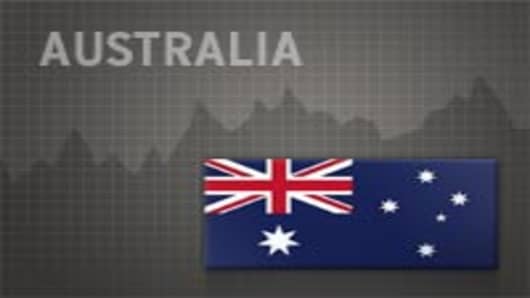Today in a somewhat surprise move, the Reserve Bank of Australiaraised interest rates 25 basis points to 3.25%. (Video: Why Australia's rate hike could backfire.)
The RBA becomes the first G20 central bank to officially begin an exit strategy from monetary easing to stem the global financial crisis.
They had previously cut rates a record 425 basis points. RBA Governor Stevens said, "The risk of serious economic contraction has passed."
Australia didn't experience a contraction to the extent that Western countries have and is fortunately tied to economic stimulus in China. However, this tie comes at a cost as the massive Chinese loan stimulus has bled out to commodities, stocks, and real estate. In August, Australia saw retail sales, building approvals, mortgage lending, and property all increase significantly. Home prices have risen almost 8% this year. The one statistic that has not improved: unemployment. Its expected to rise to 6.0% in September from 5.8% in August.
The RBA raising interest rates now underscores their belief that their monetary policy is excessive and needs to be pulled back even before a lagging indicator like unemployment responds. This will bolster the market's confidence in the central bank and it's independence from the government. The Australian dollar has been bolstered as well as the market's react to a hawkish stance on potential inflation.
As the G20 world points fingers at the US for it's weak dollar policy, the Obama administration and Federal Reserve should take notice. It's not the specifics of a new world reserve currency or the specifics of pricing oil in non-dollar terms, it's the fact that it's being discussed that matters! The rest of the world is greatly and gravely concerned not only of the current US dollar decline, but also of the potential bigger decline yet to come.
Due to the extraordinary financial crisis and monetary response, the Federal Reserve can take action. The Board should do something extraordinary to deal with the US dollar fallout. If the Fed wants to stabilize the greenback, it should raise rates like Australia before unemployment peaks. This would stabilize the US dollar and and make a strong statement about it's independence.
It needs to do both.
- Watch - The Dollar Fight
________________________
v align="left">
</</p>




